author - "Jack London"
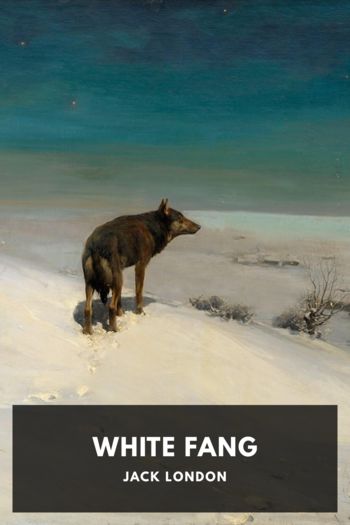
Description White Fang is Jack London’s companion novel to The Call of the Wild . In The Call of the Wild we follow a dog’s journey from domestication to wilderness, but in White Fang we see the opposite: a wild wolf-dog captured by men and eventually domesticated. White Fang’s journey isn’t an easy one; both the wild and civilization have their share of brutal violence. But he eventually seems happy in a home with a loving family. When read side-by-side with The Call of the Wild, White Fang
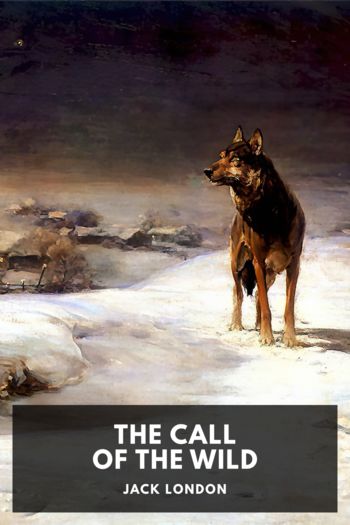
Description Jack London spent nearly a year in Alaska and the Klondike, mining for gold and braving the Alaskan winter. There he was inspired to write what would become The Call of the Wild, one of his most famous novels. The Call of the Wild tells the tale of a domesticated dog stolen from his California family and sold to sledders in Alaska. As he adapts to the harsh and wild environment, he slowly sheds domestication and returns to his primal roots. The Call of the Wild was London’s first
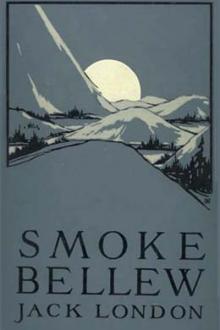
e, grunted an affirmative."How much you make that one pack?" "Fifty dollar." Here Kit slid out of the conversation. A young woman, standing inthe doorway, had caught his eye. Unlike other women landing fromthe steamers, she was neither short-skirted nor bloomer-clad. Shewas dressed as any woman travelling anywhere would be dressed.What struck him was the justness of her being there, a feeling thatsomehow she belonged. Moreover, she was young and pretty. Thebright beauty and

theRussians. There's bound to be Greek priests among them, and they'll seeyou safe through to Bering Sea,--that's where the Yukon empties,--andfrom there it won't be hard to get back to civilization. Take my wordfor it and get out of here as fast as God'll let you.""He who carries the Lord in his heart and the Gospel in his hand hath nofear of the machinations of man or devil," the missionary answeredstoutly. "I will see this man and wrestle with him. One backsliderreturned
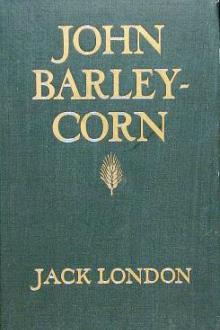
easier tolearn to smoke than to learn to drink. They learned becausealcohol was so accessible. The women know the game. They pay forit--the wives and sisters and mothers. And when they come tovote, they will vote for prohibition. And the best of it is thatthere will be no hardship worked on the coming generation. Nothaving access to alcohol, not being predisposed toward alcohol, itwill never miss alcohol. It will mean life more abundant for themanhood of the young boys born and growing up--ay,
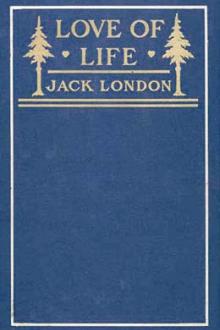
re whitening the hilltops. The air about him thickened and grew white while he made a fire and boiled more water. It was wet snow, half rain, and the flakes were large and soggy. At first they melted as soon as they came in contact with the earth, but ever more fell, covering the ground, putting out the fire, spoiling his supply of moss-fuel.This was a signal for him to strap on his pack and stumble onward, he knew not where. He was not concerned with the land of little sticks, nor with Bill

Stubener, "an' a trail that'd break your heart."Breakfast consisted of black coffee, sourdough bread, and an immense quantity of bear-meat broiled over the coals. Of this the young fellow ate ravenously, and Stubener divined that both the Glendons were accustomed to an almost straight meat diet. Old Pat did all the talking, though it was not till the meal was ended that he broached the subject he had at heart. "Pat, boy," he began, "you know who the gentleman is?"
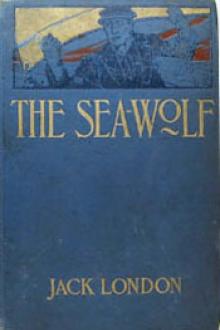
little later I heard the stroke of oars, growing nearer and nearer, and the calls of a man. When he was very near I heard him crying, in vexed fashion, "Why in hell don't you sing out?" This meant me, I thought, and then the blankness and darkness rose over me. CHAPTER II I seemed swinging in a mighty rhythm through orbit vastness. Sparkling points of light spluttered and shot past me. They were stars, I knew, and flaring comets, that peopled my flight among the suns. As I reached the

"Him fella my brother belong me," was the answer. "Him fella dietoo much." "You sing out, him fella brother belong you die too much," thewhite man went on in threatening tones. "I cross too much alongyou. What name you sing out, eh? You fat-head make um brotherbelong you die dose up too much. You fella finish sing out,savvee? You fella no finish sing out I make finish damn quick." He threatened the wailer with his fist, and the black cowered down,glaring

That night, when supper was finished and they sat on the oblong box and pulled at their pipes, the circle of gleaming eyes drew in even closer than before."I wisht they'd spring up a bunch of moose or something, an' go away an' leave us alone," Bill said. Henry grunted with an intonation that was not all sympathy, and for a quarter of an hour they sat on in silence, Henry staring at the fire, and Bill at the circle of eyes that burned in the darkness just beyond the firelight. "I

Description White Fang is Jack London’s companion novel to The Call of the Wild . In The Call of the Wild we follow a dog’s journey from domestication to wilderness, but in White Fang we see the opposite: a wild wolf-dog captured by men and eventually domesticated. White Fang’s journey isn’t an easy one; both the wild and civilization have their share of brutal violence. But he eventually seems happy in a home with a loving family. When read side-by-side with The Call of the Wild, White Fang

Description Jack London spent nearly a year in Alaska and the Klondike, mining for gold and braving the Alaskan winter. There he was inspired to write what would become The Call of the Wild, one of his most famous novels. The Call of the Wild tells the tale of a domesticated dog stolen from his California family and sold to sledders in Alaska. As he adapts to the harsh and wild environment, he slowly sheds domestication and returns to his primal roots. The Call of the Wild was London’s first

e, grunted an affirmative."How much you make that one pack?" "Fifty dollar." Here Kit slid out of the conversation. A young woman, standing inthe doorway, had caught his eye. Unlike other women landing fromthe steamers, she was neither short-skirted nor bloomer-clad. Shewas dressed as any woman travelling anywhere would be dressed.What struck him was the justness of her being there, a feeling thatsomehow she belonged. Moreover, she was young and pretty. Thebright beauty and

theRussians. There's bound to be Greek priests among them, and they'll seeyou safe through to Bering Sea,--that's where the Yukon empties,--andfrom there it won't be hard to get back to civilization. Take my wordfor it and get out of here as fast as God'll let you.""He who carries the Lord in his heart and the Gospel in his hand hath nofear of the machinations of man or devil," the missionary answeredstoutly. "I will see this man and wrestle with him. One backsliderreturned

easier tolearn to smoke than to learn to drink. They learned becausealcohol was so accessible. The women know the game. They pay forit--the wives and sisters and mothers. And when they come tovote, they will vote for prohibition. And the best of it is thatthere will be no hardship worked on the coming generation. Nothaving access to alcohol, not being predisposed toward alcohol, itwill never miss alcohol. It will mean life more abundant for themanhood of the young boys born and growing up--ay,

re whitening the hilltops. The air about him thickened and grew white while he made a fire and boiled more water. It was wet snow, half rain, and the flakes were large and soggy. At first they melted as soon as they came in contact with the earth, but ever more fell, covering the ground, putting out the fire, spoiling his supply of moss-fuel.This was a signal for him to strap on his pack and stumble onward, he knew not where. He was not concerned with the land of little sticks, nor with Bill

Stubener, "an' a trail that'd break your heart."Breakfast consisted of black coffee, sourdough bread, and an immense quantity of bear-meat broiled over the coals. Of this the young fellow ate ravenously, and Stubener divined that both the Glendons were accustomed to an almost straight meat diet. Old Pat did all the talking, though it was not till the meal was ended that he broached the subject he had at heart. "Pat, boy," he began, "you know who the gentleman is?"

little later I heard the stroke of oars, growing nearer and nearer, and the calls of a man. When he was very near I heard him crying, in vexed fashion, "Why in hell don't you sing out?" This meant me, I thought, and then the blankness and darkness rose over me. CHAPTER II I seemed swinging in a mighty rhythm through orbit vastness. Sparkling points of light spluttered and shot past me. They were stars, I knew, and flaring comets, that peopled my flight among the suns. As I reached the

"Him fella my brother belong me," was the answer. "Him fella dietoo much." "You sing out, him fella brother belong you die too much," thewhite man went on in threatening tones. "I cross too much alongyou. What name you sing out, eh? You fat-head make um brotherbelong you die dose up too much. You fella finish sing out,savvee? You fella no finish sing out I make finish damn quick." He threatened the wailer with his fist, and the black cowered down,glaring

That night, when supper was finished and they sat on the oblong box and pulled at their pipes, the circle of gleaming eyes drew in even closer than before."I wisht they'd spring up a bunch of moose or something, an' go away an' leave us alone," Bill said. Henry grunted with an intonation that was not all sympathy, and for a quarter of an hour they sat on in silence, Henry staring at the fire, and Bill at the circle of eyes that burned in the darkness just beyond the firelight. "I